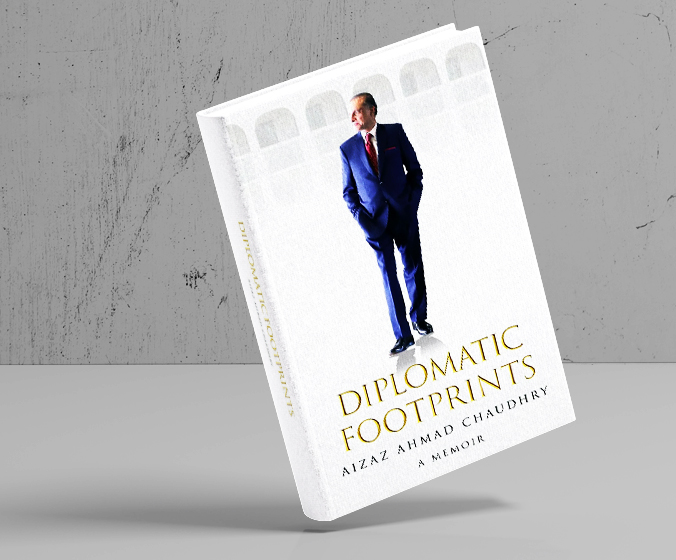Diplomatic Footprints
Foreign policy decision-making entails making difficult choices; sometimes they fare well, and sometimes not. Where and why did Pakistan succeed in its foreign policy decisions, and where and why did it not? How effectively did the Foreign Service of Pakistan assist the country’s leadership in navigating Pakistan’s ties with the outside world, and particularly with some of its most sensitive relationships, including India, China, the US, Afghanistan, and others? How did Pakistan manage in its quest for security that had become a survival imperative right from the beginning? How did it navigate its alliances, cope with deceptions and disappointments, and contribute towards ensuring a future of peace and prosperity for the people of the country?
About the Book
This book narrates two stories running in parallel – the first being the experiences of the author who has spent more than 40 years of his life in diplomacy. This dovetails the story of Pakistan itself, and its journey towards finding a place in the comity of nations. As someone directly engaged with Pakistan’s most monumental foreign policy challenges of the late 20th and early 21st century, the author offers a unique vantage point to understand Pakistan’s foreign policy choices.
As Director General South Asia, the author was intricately involved with the Pakistan-India peace process, and he was serving in New York when the events of 9/11 transpired. Through describing his time as the Spokesperson and in various other prominent positions in the Ministry, he provides insight into how Pakistan faced some of its most pivotal foreign policy challenges, including the nuclearization of South Asia, the Kargil fallout, the crisis in Yemen, and others. The author also served as the country’s Foreign Secretary and Ambassador to the US during a particularly testing time, when Pakistan was presented with daunting trials in managing its relations with the US, Afghanistan and India. This memoir describes meetings with world leaders like Biden, Obama, Ghani, Karzai, Xi, Putin, Modi, and other high officials, and explains from the perspective of a practitioner some of the difficult choices faced by the country’s leadership and its diplomats.
Through sharing his experiences, the author offers an insider view towards the making of foreign policy and its execution, making it a fascinating account for anyone interested in diplomacy or foreign affairs.
About the Author
Ambassador Aizaz Ahmad Chaudhry has served as a member of the Foreign Service of Pakistan for 37 years, rising to the rank of the Foreign Secretary of Pakistan for over three years from December 2013 to March 2017.
Mr. Chaudhry’s last diplomatic assignment was as Ambassador of Pakistan to the United States of America.
He also served as Ambassador of Pakistan to the Netherlands, Foreign Office Spokesman, and deputy permanent representative of Pakistan to the United Nations in New York.
As Director General for relations with South Asia, he remained closely associated with India-Pakistan peace process, and relations with Bangladesh.
After his retirement from the foreign service, Ambassador Chaudhry has been serving as the Director General of Institute of Strategic Studies Islamabad since June 2018.
He has authored two books and numerous research articles. His first book titled “Pakistan mirrored to Dutch eyes” is on public diplomacy, while his recent book is a memoir ‘Diplomatic Footprints’ that discusses the intricacies of foreign policy making in Pakistan.
Ambassador Chaudhry holds Masters in International Relations from Tufts University, Massachusetts, and a First Class First Bachelor of Science from Punjab University, Lahore.
Contact:
aachaudhry@issi.org.pk
aizaz1101@gmail.com
+923365644459
Address. DG ISSI. F5/2. Islamabad, Pakistan.

